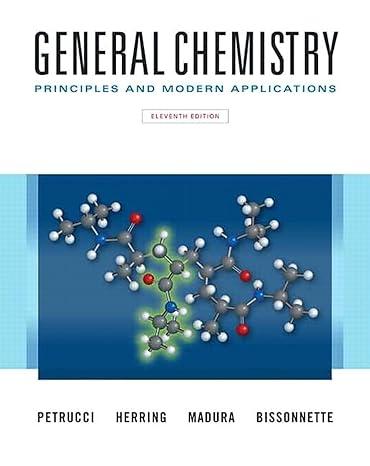(A) What mass of sucrose must be burned to produce 1.00 x 10 3 kJ of heat?...
Question:
(A) What mass of sucrose must be burned to produce 1.00 x 103 kJ of heat?
(B) A 25.0 mL sample of 0.1045 M HCl(aq) was neutralized by NaOH(aq). Use the result of Example 7-4 to determine the heat evolved in this neutralization.
Example 7-4
In the neutralization of a strong acid with a strong base, the essential reaction is the combination of H+(aq) and OH-(aq) to form water.
![]()
Two solutions, 25.00 mL of 2.50 M HCl(aq) and 25.00 mL of 2.50 M NaOH(aq), both initially at 21.1 °C, are added to a Styrofoam-cup calorimeter and allowed to react. The temperature rises to 37.8 °C. Determine the heat of the neutralization reaction, expressed per mole of H2O formed. Is the reaction endothermic or exothermic?
Step by Step Answer:

General Chemistry Principles And Modern Applications
ISBN: 9780132931281
11th Edition
Authors: Ralph Petrucci, Jeffry Madura, F. Herring, Carey Bissonnette





